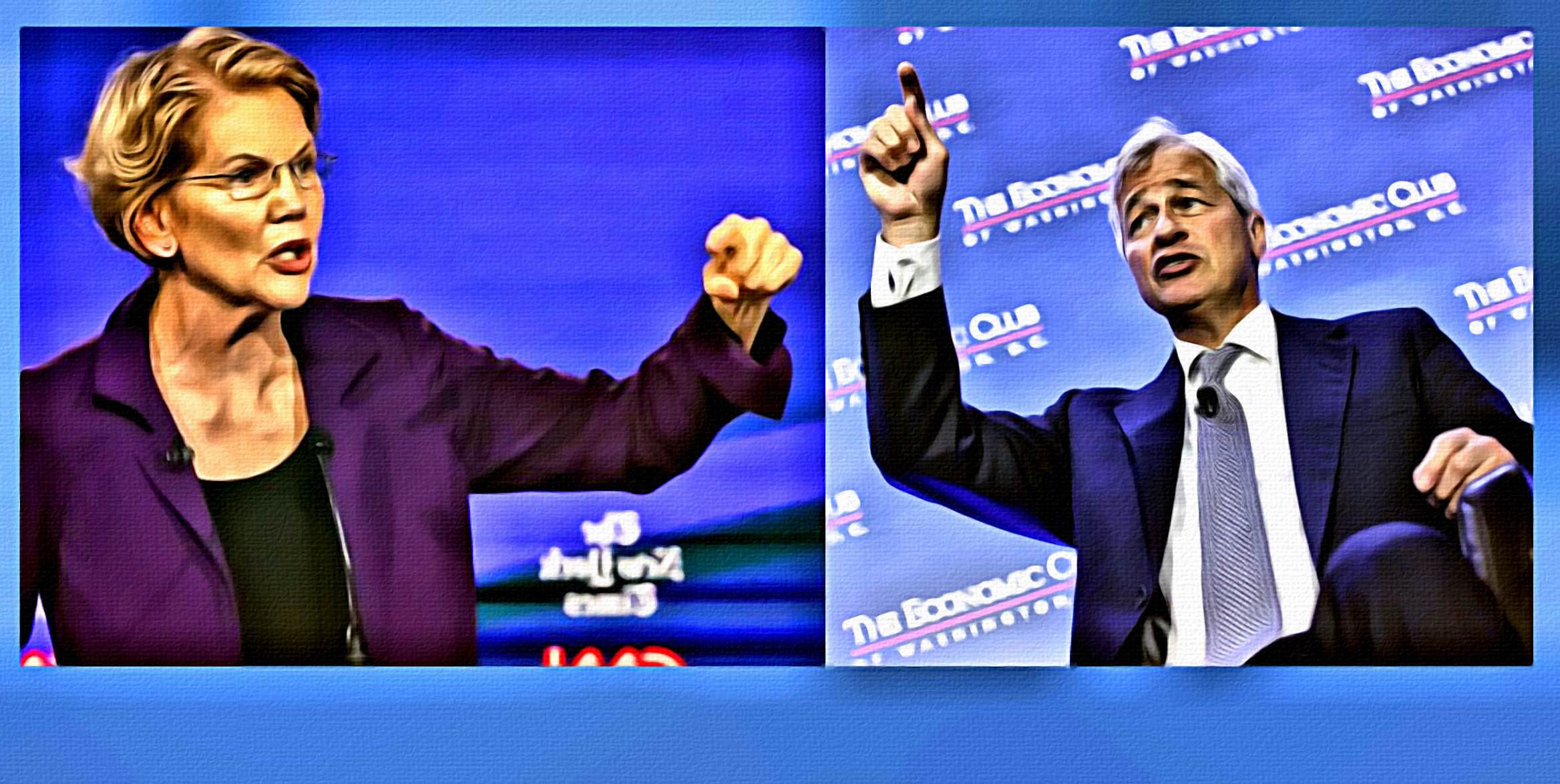If elections are about household finances and picking the least risky choice, then pray Elizabeth Warren is not an option. I’m pretty sure most CEOs agree with me. Certainly, Jamie Dimon, the chairman of JPMorgan Chase, believes President Warren spells trouble for America’s business leaders, who would have to re-learn how to operate their companies.
The much respected Dimon told CNBC this week that “[Warren] uses some pretty harsh words [that] some would say vilifies successful people. I think we should applaud successful people.” Warren’s anti-business rhetoric should frighten voters: “There is nobody in this country that got rich on their own. Nobody!” And she does not just talk the mad-liberal talk. She plans to divert private wealth into expensive social experiments, such as her state-run healthcare proposal.
To be specific, Mr. Dimon is alarmed by Warren’s proposed Accountable Capitalism Act that will “change the complete nature of how you run a corporation.” Actually, he meant corporations with revenue of at least $1 billion, which Warren would regulate with a new bureaucracy (Office of US Corporations) that mandates 40% of a company’s board is elected by its employees, creates disincentives for stock-based compensation, and requires political activity to be approved by 75% of the board and 75% of the shareholders – just to get started.
Ms. Warren’s fundamental failing is her disdain for ownership and leadership. In her worldview, there is no difference between Sam Walton, the billionaire founder of Wal-Mart (who drove an old pick-up until his end of days) and Gordon Greed Is Good Gecko. Hers is the thinking trap of make-believe progressives, who don’t distinguish between team-building founders and the “smartest” guys in the room that break up companies and small towns. She hates them all.
The American Dream is in part the belief in ownership as a measure of success (and self-worth). We work hard to own a home – and harder still to own a business. European socialists, content to live in rented dwellings and draw wages, are not Americans. Most, if not all, of us aspire to have an equity stake in where we live and work. Dimon gets this: “I think we have to look at [how] America was founded on free enterprise; freedom and free enterprise are interchangeable.”
American exceptionalism is driven by competition at every level of the economy, especially between the visions and expertise of corporate CEOs. There is one reason Apple supplanted Nokia as the dominant mobile phone seller: Steve Jobs, whose vision and discipline began and then re-invented Apple. Such captains of industry are either richly rewarded or they will take their talents elsewhere – perhaps outside the USA. That’s the law of the free-market jungle, in which the best ideas and brightest entrepreneurs rise to the top.
In October’s debate, Ms. Warren claimed, “Look, I don’t have a problem with billionaires, but you built that fortune in America, using workers all of us pay to educate.” This is the thinking trap of a collectivist, who believes success depends on “public” roads and government services. Warren’s idea of an all-powerful central state funded by super-taxing wealth is reckless, because super-taxing success undermines American exceptionalism.
In a perfect world, the 2020 election would pit President Trump against Mayor Bloomberg. If the president must be a Democrat, let it be someone with business experience and leadership expertise – not someone who lied about her ethnicity to attain success. That stunt is proof enough Ms. Warren did not compete on merit when she had the chance. No wonder she conflates success and cheating. No wonder she is a threat to the American Dream.
